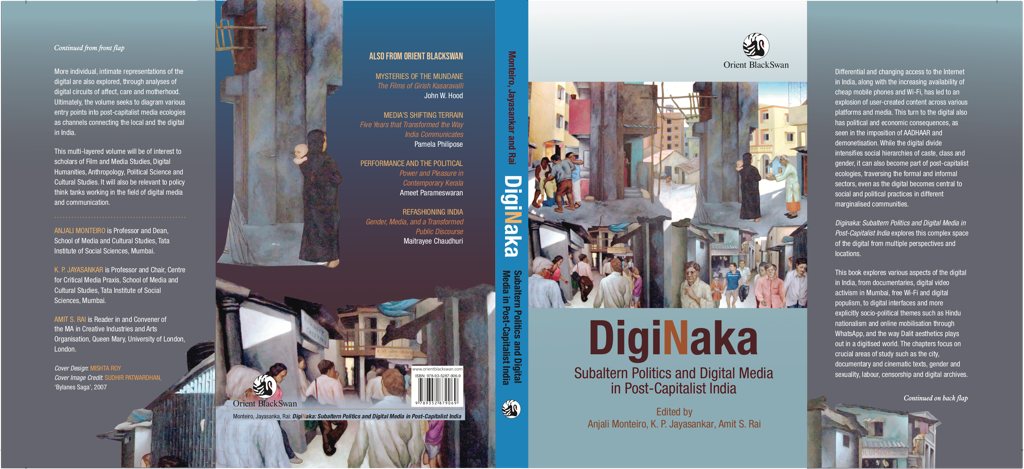Menu
DigiNaka
Anjali Monteiro, K.P. Jayasankar, Amit S. Rai (Eds.), Orient Black Swan, 2020

Differential and changing access to the Internet in India, along with the increasing availability of cheap mobile phones and WiFi, has led to an explosion of user-created content across various platforms and media. This turn to the digital also has political and economic consequences, as seen in the imposition of AADHAAR and demonetisation. While the digital divide intensifies social hierarchies of caste, class and gender, it can also become part of the logistics of postcapitalist ecologies, traversing the formal and informal sectors, even as the digital becomes central to social and political practices in different marginalised communities.
Diginaka: Subaltern Politics and Digital Media in Post-Capitalist India explores this complex space of the digital from multiple perspectives and locations.
This book explores various aspects of the digital in India, from documentaries, digital video activism in Mumbai, free WiFi and digital populism, to digital interfaces and more explicitly socio-political themes such as Hindu nationalism and online mobilisation through WhatsApp, and the way Dalit aesthetics plays out in a digitised world. The chapters focus on crucial areas of study such as the city, documentary and cinematic texts, gender and sexuality, labour, censorship and digital archives.
More individual, intimate representations of the digital are also explored, through analyses of digital circuits of affect, care and motherhood. Ultimately, the volume seeks to diagram various entry points into postcapitalist media ecologies as channels connecting the local and the digital in India.
This multi-layered volume will be of interest to scholars of Film and Media Studies, Digital Humanities, Anthropology, Political Science and Cultural Studies. It will also be relevant to policy think tanks working in the field of digital media and communication.
